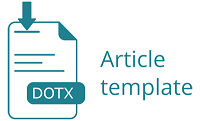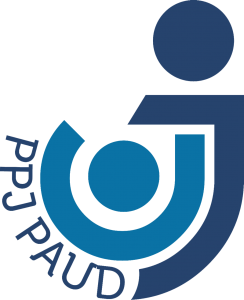Pembelajaran Sains Bermain Peran untuk Meningkatkan Kreativitas Anak Usia Dini
Abstract
Keywords
Full Text:
PDFReferences
Afifah, R. N., Syaodih, E., Suhandi, A., Maftuh, B., Hermita, N., Handayani, H., Qonita, R., Ningsih, A. R., Gumala, Y., & Samsudin, A. (2019). Develop children’s science process skills through building activities in center of beam: Optical geometry on focus. Journal of Physics Conference Series, 1280(5), 052016.
Afriani, D., Wilujeng, I., Jumadi, & Kuswanto, H. (2019). Implementation of problem based learning model assisted Edmodo to measure students' scientific communication skills. Journal of Physics: Conference Series, 1233(1), 012041.
Aprianti, W., Muslihin, H. Y., & Elan, E. (2021). Applying discipline character: Parents vs. teachers. Journal of Early Childhood Care and Education, 4(1), 1–10.
Ariawan, S. (2019). Countering zeitgeist of self-centered through role playing methods among junior high school students. IJECA (International Journal of Education and Curriculum Application), 2(3), 2143.
A’yun, N. Q., Zahruddin, & Asy’ari, H. (2022). Analysis of curriculum management in early childhood. EDUKASI Jurnal Pendidikan Islam (e-Journal), 10(2).v
Bakri, A. R., & Nasucha, J. A. (2021). Pengaruh bermain peran terhadap interaksi sosial anak usia dini. Tafkir: Interdisciplinary Journal of Islamic Education, 2(1), 58–79.
Bertrand, M. G., & Namukasa, I. K. (2020). STEAM education: Student learning and transferable skills. Journal of Research in Innovative Teaching & Learning.
Dhety, O., Vernalia, H., Neng, L., Nina, M., Neneng, K., & Nina, P. (2023). Project eksperimen sains untuk anak usia dini. Yogyakarta: KBM Indonesia.
Dwirahmah, E. (2013). Peningkatan kreativitas melalui pendekatan inquiri dalam pembelajaran sains. Jurnal Pendidikan Usia Dini, 7(2), 240–250.
Elisanti, E., Rudibyani, R. B., Sajidan, S., Prayitno, B. A., Perdana, R., & Wulandari, K. F. N. (2020). Analysis of students' inquiry skills in senior high school through learning based on the Hierarchy of Inquiry Model. Atlantis Press. 409-414
Fasting, M. L., & Høyem, J. (2022). Freedom, joy and wonder as existential categories of childhood – reflections on experiences and memories of outdoor play. Journal of Adventure Education & Outdoor Learning, 24(2), 145-158
Ferdiyansyah, A., Zahara, S. L., Rahayu, W. P., Alfan, M., & Kusumaningrum, S. R. (2021). Keefektifan model pembelajaran role playing terhadap peningkatan interaksi sosial siswa kelas 4 SDN Bumiayu 2 Malang. Jurnal Pembelajaran, Bimbingan, dan Pengelolaan Pendidikan.
Gunawan, H., & Ratna, R. (2020). Improving students’ learning motivation in reading comprehension using reciprocal teaching. Jurnal VARIDIKA, 31(2), 184–193.
Hapidin, W., Gunarti, W., Pujianti, Y., & Syarah, E. S. (2020). STEAM to R-SLAMET modification: An integrative thematic play-based learning with R-SLAMETS content in early childhood education. JPUD - Jurnal Pendidikan Usia Dini, 14(2), 262-74.
Hasanah, U., & Deiniatur, M. (2018). Character education in early childhood based on family. Early Childhood Research Journal (ECRJ), 1(1).
Heikka, J., Kettukangas, T., Turja, L., & Heiskanen, N. (2022). How educators commit to enhancing children’s participation in early childhood education pedagogical plans. South African Journal of Childhood Education, 12(1), a1170.
Husein, S. (2020). The curriculum of early childhood education: Indonesia and United Kingdom. Progresiva Jurnal Pemikiran dan Pendidikan Islam, 9(1).
Kewalramani, S., Palaiologou, I., & Dardanou, M. (2020). Children’s engineering design thinking processes: The magic of the robots and the power of blocks (electronics). Eurasia Journal of Mathematics Science and Technology Education, 16(3), 1830.
Latifah, U., & Sagala, A. C. D. (2014). Upaya meningkatkan interaksi sosial melalui permainan tradisional jamuran pada anak kelompok B TK Kuncup Sari Semarang tahun pelajaran 2014/2015. PAUDIA: Jurnal Penelitian dalam Bidang Pendidikan Anak Usia Dini, 3(2), Oktober.
Mukhtar AH, N., & Munip, A. (2019). Cultivating entrepreneurial values to improve several aspects of early childhood development: The case study in Khalifah Kindergarten Yogyakarta. Sunan Kalijaga International Journal on Islamic Educational Research, 2(1), 85-111.
Novitawati, N., Wamaungu, J. A., & Astuti, S. W. (2018). Developing early childhood ability in understanding rules using combination of role-playing model and question-answer method through medium of traffic signs. Journal of K6 Education and Management, 1(2), 11-18.
Nuraeni, N., & Gunawan, I. M. S. (2022). Internalization of maritime cultural values through education to grow early childhood awareness: A review. Prisma Sains Jurnal Pengkajian Ilmu dan Pembelajaran Matematika dan IPA IKIP Mataram, 10(1), 55–64.
Nurqolbi, R. I., Riyanto, A. A., & Lestari, R. H. (2019). Pengaruh keterampilan proses sains terhadap kemampuan berpikir logis pada anak usia dini. CERIA (Cerdas Energik Responsif Inovatif Adaptif), 2(5), 189–196.
Putri, S. U. (2019). Pembelajaran sains untuk anak usia dini. Bandung: Sumedang Press.
Pratiwi, N. I., Misbah, M., Miriam, S., Harto, M., & Muhammad, N. (2022). Model of discovery learning in science learning: Bibliometric analysis of the current state of the art and perspectives. Journal of Mathematics Science and Computer Education, 2(2), 1–10.
Rahayu, D. P. (2020). Strategies for increasing teacher competence through structured mentoring in developing local wisdom-based curriculum in Az-Zahwa Playgroup. AL-ATHFAL Jurnal Pendidikan Anak, 6(2), 185–198.
Ramdini, T. P., & Yaswinda. (2021). Motivation and self-confidence in motor activities in kindergarten. Advances in Social Science, Education and Humanities Research.
Sadiah, N., & Lestari, R. (2020). Upaya meningkatkan pengetahuan sains pada anak usia dini melalui pembelajaran STEAM. Jurnal CERIA, 3(3), 237–244.
Santika, D. A., Mulyana, E., & Nur, L. (2020). Pengembangan media pembelajaran model STEM pada konsep terapung, melayang, tenggelam untuk memfasilitasi keterampilan saintifik anak usia dini. Journal of Production Agriculture, 4(1), 171–184.
Siregar, S. W., & Lubis, W. (2023). Studi meta analisis model pembelajaran role playing terhadap hasil belajar siswa dalam pembelajaran IPS di SD. JS (Jurnal Sekolah).
Sholeha, V. (2019). Efektivitas metode guided discovery pada pembelajaran sains terhadap perkembangan kognitif anak usia 5-6 tahun. Jurnal Pendidikan Anak, 8(1).
Sritanto, S. (2022). Children's character through learning the art of musical forming. Jurnal JPSD (Jurnal Pendidikan Sekolah Dasar), 9(1).
Sriyono, H., Rizkiyah, N., & Widiyarto, S. (2022). What education should be provided to early childhood in the millennial era? Jurnal Obsesi Jurnal Pendidikan Anak Usia Dini, 6(5), 5018-5028.
Sukmadewi, A. A. P. E., & Tirtayani, L. A. (2021). The stimulation of sense of community on the early childhood' online learning. Journal of Psychology and Instructions, 5(1), 34–42.
Sukriyatun, G. (2022). Implementation of the sociodrama method as an effort improving history learning outcomes in proclamation of independence materials. Journal of Education on Social Issues, 2(1), 22–28.
Suparto, S. (2020). Improving the learning quality of math teachers through the academic supervision with technique of class observation. International Research-Based Education Journal, 2(1), 21–24.
Suryana, D., Sari, N. E., Winarti, L., & Mayar, F. (2021). English learning interactive media for early childhood through the Total Physical Response method. JPUD - Jurnal Pendidikan Usia Dini, 15(1), 61-80.
Tarigan, A. (2017). Penerapan model pembelajaran role playing untuk meningkatkan hasil belajar IPS siswa kelas III SD Negeri 013 Lubuk Kembang Sari Kecamatan Ukui. Primary, 5(3), 102–112.
Vu, T. T., & Dinh, V.-H. (2022). Validating a scale for measuring preschool teachers’ competence in promoting children’s language development in Vietnam: An exploratory factor analysis. European Journal of Educational Research, 11(4), 2167–2181.
Zhang, L., & Van Reet, J. (2021). How is “knowledge” constructed during science activities? Detaching instructional effects of “playing” and “telling” to optimize integration of scientific investigations. Research in Science Education, 51(3), 829–848.
DOI: https://doi.org/10.17509/edukids.v21i1.68270
Copyright (c) 2024 Edukids: Jurnal Pertumbuhan, Perkembangan, dan Pendidikan Anak Usia Dini

This work is licensed under a Creative Commons Attribution-ShareAlike 4.0 International License.















.jpg)






